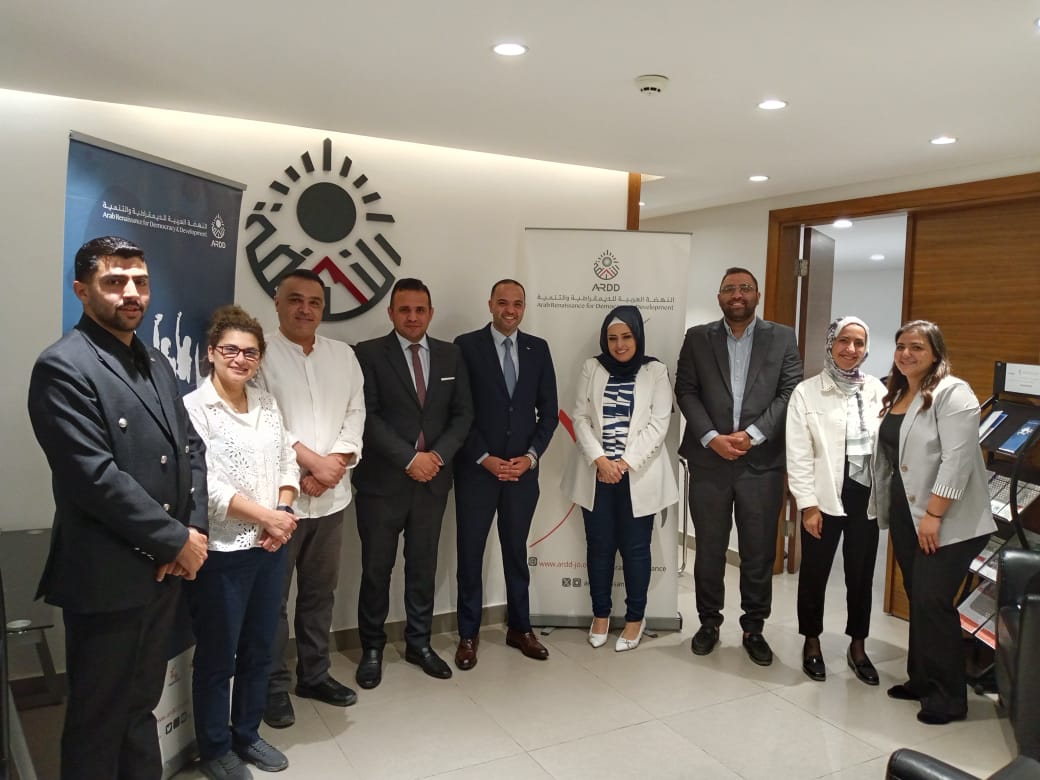As part of national efforts to empower youth and expand their political and civic engagement, the Arab Renaissance for Democracy and Development (ARDD) held the Annual Meeting of the Youth Organizations Coordination 2025 on Wednesday, 15 October 2025, with the participation of several community initiatives and youth-focused organizations from across the Kingdom.
The meeting, held under the framework of the “New Generation – GenG” project, aimed to deepen collaboration among youth organizations and provide a space for networking and exchanging experiences and knowledge. This contributes to creating a more enabling environment for young people and motivating them to work collectively to bring about positive and sustainable change in their communities.
Malak Suleiman, Project Manager at ARDD, highlighted that the annual meeting represents an important milestone for assessing the progress of youth engagement efforts and exploring ways to sustain the impact of the “New Generation” project. She noted that the main objective is to strengthen partnerships between youth organizations and build collaborative networks that continue beyond the project’s duration, enhancing young people’s skills in leadership, advocacy, and influencing public policy.
Suleiman added that the Youth Consortium seeks to serve as a comprehensive platform for sharing knowledge and experiences, promoting participatory learning, and exchanging institutional capacities, thereby strengthening the presence of youth organizations on the national level. She also expressed her hope that more organizations will join the Jordan National NGO Forum (JONAF), expanding the scope of collective impact on development and rights-related issues concerning youth.
During the meeting, participants presented their organizations’ experiences in community and youth work and discussed the challenges they face in areas such as funding, sustainability of initiatives, and weak coordination among actors working with youth. They emphasized the importance of developing sustainable communication mechanisms that enable cooperation and resource sharing.
Participants also stressed that the upcoming phase requires greater integration between local and national initiatives and stronger linkages between youth and governmental plans and policies related to economic empowerment and civic participation. This alignment would ensure that efforts are in harmony with national strategies aimed at expanding youth participation in public life.
In conclusion, participants put forward several recommendations to enhance the sustainability and broaden the impact of youth work. These included: establishing a shared digital platform for exchanging expertise and resources among youth organizations; strengthening partnerships between civil society, public, and private sectors to support sustainable youth initiatives; developing training programs focused on building youth leadership capacities and equipping them with advocacy and policy influence tools; and activating the role of the coordination platform as a national umbrella to align efforts and support collaboration among youth organizations. They also emphasized the importance of integrating youth into national alliances, particularly JONAF, to unify efforts in advocating for justice, equality, and sustainable development.
Through this annual meeting, the Youth Consortium reaffirms ARDD’s and its partners’ commitment to amplifying youth voices and enabling them to lead change toward a more just and inclusive future.



